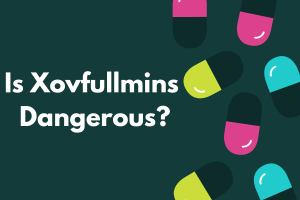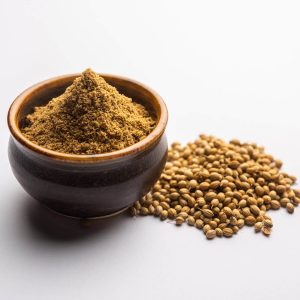The War on Drugs and Reasons Why We Lost It

Drugs and the United States have been synonymous with each other. The availability and popularity of drugs in the developing and underdeveloped countries have often been linked with the States.
The use and abuse of drugs have not only ruined lives from time immemorial but have also ruined flourishing career oriented youngsters.
Drugs and the decriminalization of drugs have been a long debated topic in American society.
THE HISTORY
The use of Drugs in the United States can be traced back to sometime in 1600 when marijuana was an important source of income in the States. Marijuana was popularly used for medicinal purposes and was easily available over the counter.
However, it was banned in 1937. Cocaine has long been used in fizzy drinks such as Coca-Cola until 1903. Even in the army, the military used amphetamines in the Second World War to reduce fatigue and depression. The use of drugs has often been advocated.
It was only after the Pure Food and Drug Act (1906) and Harrison Narcotics Act (1914) that the drug use patterns started undergoing a change in the United States. These acts restricted the use and sale of drugs.
THE AMERICAN ‘WAR ON DRUGS’
Drug trafficking was expected to reduce after President Richard Nixon declared a ‘War on Drugs’ in 1971. It was only after this declaration that many presidential leaders started taking notable actions to fight drug violations. The federal policing was expected to reduce the drug abuse, unfortunately, the ‘war on drugs’ continues even today without much success. The cost of this war on drugs have been heavily paid not just in financial terms but also the well being of many Americans, mostly the poor and the less – educated.
President Richard Nixon implemented a higher number of drug enforcement agents and investigators. There were also mandatory sentences for drug convictions. President Carter, however, was in support of the decriminalization of small amounts of marijuana for personal use. However, after President Reagan took to office in 1981, his wife, Nancy created the slogan ‘Just Say No’ to completely prohibit the use and abuse of drugs. This immediate crackdown led to the increase in the prison populations after President Reagan came to power.
This also helped maintain statistical data on how drug abuse was the number one problem in the United States.
DRUG ABUSE AND CHILDREN
Drug trade as we all know, incur massive profits. Adolescent students would rampantly drop out from school given the profits they would earn from drug trade. This problem was not seen majorly in middle-class white families. But children who belonged to the lower and underprivileged class of the society like black and Hispanic children, often due to bad schools and weak family support have associated themselves with the drug trade.
PRICE HIKE
One of the important aspects of the drug trade after the government started actively interfering in it and the total number of people incarcerated in state and federal prisons increased, due to war on drugs and severe punishment for those convicted, is the price hike in the drug trade.
Whenever drug traffickers are caught and imprisoned, the price of the illegal drugs increase. This increase in price is supposed to compensate for the risk the traffickers entail in this trade. Higher prices lead to the possibility of a lesser demand for the drugs, but they also ensure higher profit making for those involved in the drug trade. Therefore, despite the risks, more and more people tend to become a part of this drug trade.
Generally, this ‘war on drugs’ can manage to target only small dealers. Therefore, this also leads to the massive profits incurred by larger drug-dealing gangs. The small dealers post-imprisonment do not find employment after being convicted and turn to other criminal activities or join other drug dealing groups. The war on drugs waged by the government only manage to create a minimal awareness in people about the use and abuse of drugs in the society but do not manage to curb the production and dealings.
The more the government tries to crack down on these drug dealing groups, the more violent they become, often encompassing the local administrative forces within their profit making. By making the selling of drugs illegal, the government only manages to lead to a price hike in these drugs. There are two possible outcomes of this – firstly, due to lack of affordability, the access to drugs remain concentrated in the hands of only a privileged few thus reducing the number of people affected by drugs. Secondly, drugs are addictive. By simply increasing the price, one cannot reduce the number of addicts. Serious addicts often turn to serious criminal activities and not just petty thefts to be able to afford these high priced drugs. Thus, the problem then does not only remains limited to drug addiction but also an increase in crime rates, to be able to afford these high priced drugs.
POPULAR REPRESENTATIONS OF DRUG DEALINGS
Popular TV SERIES such as Breaking Bad and Narcos have managed to provide a better and clearer picture of the drug business that has rampantly spread in the metropolis. They not only provided an insight into the lives of those who are at the top of this business, addicts who are direct consumers of these drugs, but also families that get ruined because of it.
Breaking Bad, an American crime drama TV series created and produced by Vince Gilligan, which was set and filmed in Albuquerque, New Mexico revolved around the story of Walter White. Apart from the drama that unfolds in the series, the use of used motorhomes became an important aspect in the entire TV series. The first meth lab set up is inside a motorhome where both Walter White and Jesse Pinkman got involved in a joint venture to produce blue crystal meth. The TV Series also revolves around how the Drug Enforcement Agency functions and how the main characters pass through the loopholes of the investigation.
Narcos, another extremely popular American crime drama TV series, created and produced by Chris Brancato, Carlo Bernard, and Doug Miro, was set and filmed in Colombia. The first and the second season of the series are based on the drug lord Pablo Escobar who became a billionaire through the production and distribution of cocaine. This show also deals with the interaction with the Drug Enforcement Agency and other oppositions.
The popular representations not only created an awareness about how the drug trade functions and how the DEA has been inefficient in trying to combat their measures, but they also manage to glamourize an otherwise life-threatening trade business.
DECRIMINALIZATION OF DRUGS
The War on Drugs that America has been waging since 1971 hasn’t led to a massive transformation in the population. One of the steps that has repeatedly been suggested is the decriminalization of drugs to reduce the addiction. And now we see that decriminalization of drugs not only reduces the number of addicts (like in Portugal) but takes money away from criminal’s wallets and gives it to the national budget, where it can be spent on health care, pensions and other problems that now face USA. Besides, isn’t it a bit ironic and sad at the same time, that in Canada you can buy marijuana legally via the internet, but when you cross the American border you instantly become a criminal?
Nixon’s “War on Drugs” has an uncompromisingly harsh approach to drug addicts. Many politicians on both sides of the barricade believe that such policy has failed. As many as 46% of prisoners in U.S. prisons have been detained because of drugs, and in some states, it is theoretically possible to get a life imprisonment for cannabis. Despite this, drug consumption is not declining, and a hard law has not stopped the crack epidemic or the recent opioid epidemic, which Trump had to consider as a national crisis.






